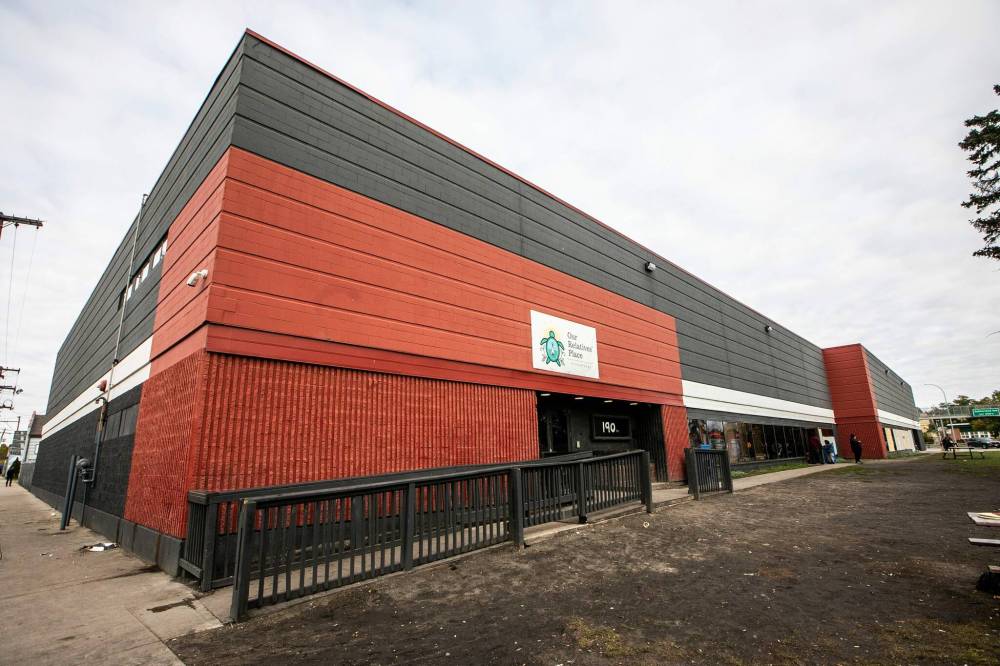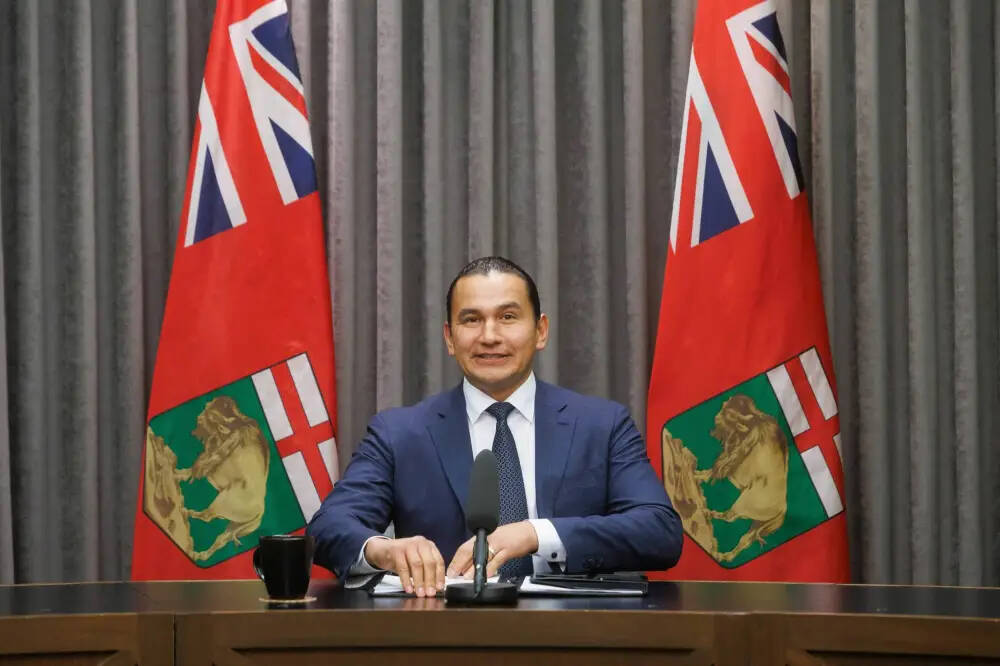Manitoba MLAs pass 72-hour detention bill after weeks of sparring
Read this article for free:
or
Already have an account? Log in here »
To continue reading, please subscribe:
Monthly Digital Subscription
$0 for the first 4 weeks*
- Enjoy unlimited reading on winnipegfreepress.com
- Read the E-Edition, our digital replica newspaper
- Access News Break, our award-winning app
- Play interactive puzzles
*No charge for 4 weeks then price increases to the regular rate of $19.95 plus GST every four weeks. Offer available to new and qualified returning subscribers only. Cancel any time.
Monthly Digital Subscription
$4.99/week*
- Enjoy unlimited reading on winnipegfreepress.com
- Read the E-Edition, our digital replica newspaper
- Access News Break, our award-winning app
- Play interactive puzzles
*Billed as $19.95 plus GST every four weeks. Cancel any time.
To continue reading, please subscribe:
Add Free Press access to your Brandon Sun subscription for only an additional
$1 for the first 4 weeks*
*Your next subscription payment will increase by $1.00 and you will be charged $16.99 plus GST for four weeks. After four weeks, your payment will increase to $23.99 plus GST every four weeks.
Read unlimited articles for free today:
or
Already have an account? Log in here »
The acrimony and finger-pointing that gripped the Manitoba legislature over a proposed law to allow for the 72-hour detention of people intoxicated by meth ended with a whimper Wednesday, as the bill passed with near unanimous support.
Bill 48 passed third reading Wednesday afternoon following a hastily called news conference in which Premier Wab Kinew accused the Progressive Conservatives of playing politics with legislation that he said is critical to addressing Manitoba’s meth crisis.
“We’ve been calling this bill over and over and they keep wasting time. I’m not playing games,” Kinew said, standing in front of more than a dozen law enforcement officials, first-responders and other backers of the bill who gathered at the legislature.

MIKAELA MACKENZIE / FREE PRESS FILES
The province is prepared to open a 20-bed facility, dubbed the “protective care centre,” at 190 Disraeli Fwy., the premier said.
“I think everybody in Manitoba knows that meth is causing a ton of damage out there and we need to do something about it.”
The proposed law allows for a person in a meth-induced state to be held for as long as 72 hours. Currently, the time allowed is 24 hours.
The Tories, who raised concerns about the implementation of Bill 48, appeared poised to oppose it, but then threw their support behind it. The bill passed with support from 51 of 57 MLAs. Mark Wasyliw, the lone independent, was the only member to vote against the act. Five other MLAs did not participate in the vote.
The legislation has been a subject of debate since the NDP introduced it Oct. 2; the PCs accused the government of trying to rush it through without proper consideration and community consultation.
The NDP threatened to extend the fall legislative session, slated to end Thursday, if the bill did not pass in time. Kinew had called it a “game of chicken.”
Debate over the bill continued during question period immediately before the vote, with Opposition Leader Obby Khan accusing Kinew of “failing to listen to Manitobans” about changes proposed by his party. He referenced a consultation session in mid-October, in which a legislative committee studying the bill listened to hours of feedback from the public.
“I think everybody in Manitoba knows that meth is causing a ton of damage out there and we need to do something about it.”
The Tories had demanded a handful of amendments, such as prohibiting a 72-hour detention site from being located within 500 metres of a school, child-care centre, personal care home, playground, park or community centre.
Kinew said the province is prepared to open a 20-bed facility, dubbed the “protective care centre,” at 190 Disraeli Fwy. That site had been pegged as a potential supervised consumption site, but the plan was sidelined by opposition from community members who said it was too close to a school.
Occupancy permits for the property have been approved and medical staff are being trained, he said.
“We’re talking about the drunk tank for people that are high on meth —there’s nothing new here,” Kinew said, describing the meth crisis as “an urgent matter of public importance.”

MIKAELA MACKENZIE / FREE PRESS FILES
Progressive Conservative leader Obby Khan accused Kinew of “failing to listen to Manitobans” about changes proposed by his party.
“We have a responsibility to take action and help these people who are suffering from meth addiction.”
The PC party wanted the province to have a 45-day consultation period and publish a plan outlining the potential impact of the centre on the community.
“Manitobans asked for these changes but this NDP premier refused them at every single chance they had,” Khan said during question period.
Kinew countered by tabling a statement from TJ Belluk, vice-president of the United Fire Fighters of Winnipeg union.
Belluk described a situation that occurred Tuesday night, in which firefighters responding to a person in medical distress were unable to give aid because a person believed to be high on meth was “behaving erratically.”
“These people need help, we are doing them no favours by allowing them to be back out in the street time and time again.”
“EMS had staged and when fire crews arrived they remained in the truck as the person approached and jumped on the truck trying to gain entry,” the statement said.
“The individual went around the truck and tried opening the passenger door, but luckily the crew had all doors locked. The person jumped on truck again and fell off. Luckily, (there were) no injuries from the fall.”
Belluk said it was one of many meth-related incidents that occurred overnight.
He said intoxicated people often verbally abuse crews, who are forced to keep their distance to avoid physical confrontation.
“This can be difficult at times when you know or see someone in medical distress and feel threatened if you approach,” his statement said.

MIKE DEAL / FREE PRESS FILES
“I’m not playing games,” Premier Wab Kinew said.
Rebecca Clifton, administrative director of the Paramedic Association of Manitoba, said such situations have become common for all first-responders.
“Meth use has completely changed the way paramedics approach scenes and has increased the violence against first responders,” she said during the news conference held by the government.
“These calls often take longer, they involve a greater risk and they keep ambulances tied up while other emergencies are waiting.”
Mayor Scott Gillingham, who voiced similar support, said the bill “addresses a critical need in our community.”
“These people need help, we are doing them no favours by allowing them to be back out in the street time and time again,” he said.
Critics of the bill have raised concern it could result in possible breaches of the Charter right not to be arbitrarily detained, and have questioned whether involuntary detention is backed by clinical evidence as a way to treat and manage addiction.
The law must receive royal assent to be enacted.
tyler.searle@freepress.mb.ca

Tyler Searle is a multimedia producer who writes for the Free Press’s city desk. A graduate of Red River College Polytechnic’s creative communications program, he wrote for the Stonewall Teulon Tribune, Selkirk Record and Express Weekly News before joining the paper in 2022. Read more about Tyler.
Every piece of reporting Tyler produces is reviewed by an editing team before it is posted online or published in print — part of the Free Press‘s tradition, since 1872, of producing reliable independent journalism. Read more about Free Press’s history and mandate, and learn how our newsroom operates.
Our newsroom depends on a growing audience of readers to power our journalism. If you are not a paid reader, please consider becoming a subscriber.
Our newsroom depends on its audience of readers to power our journalism. Thank you for your support.






